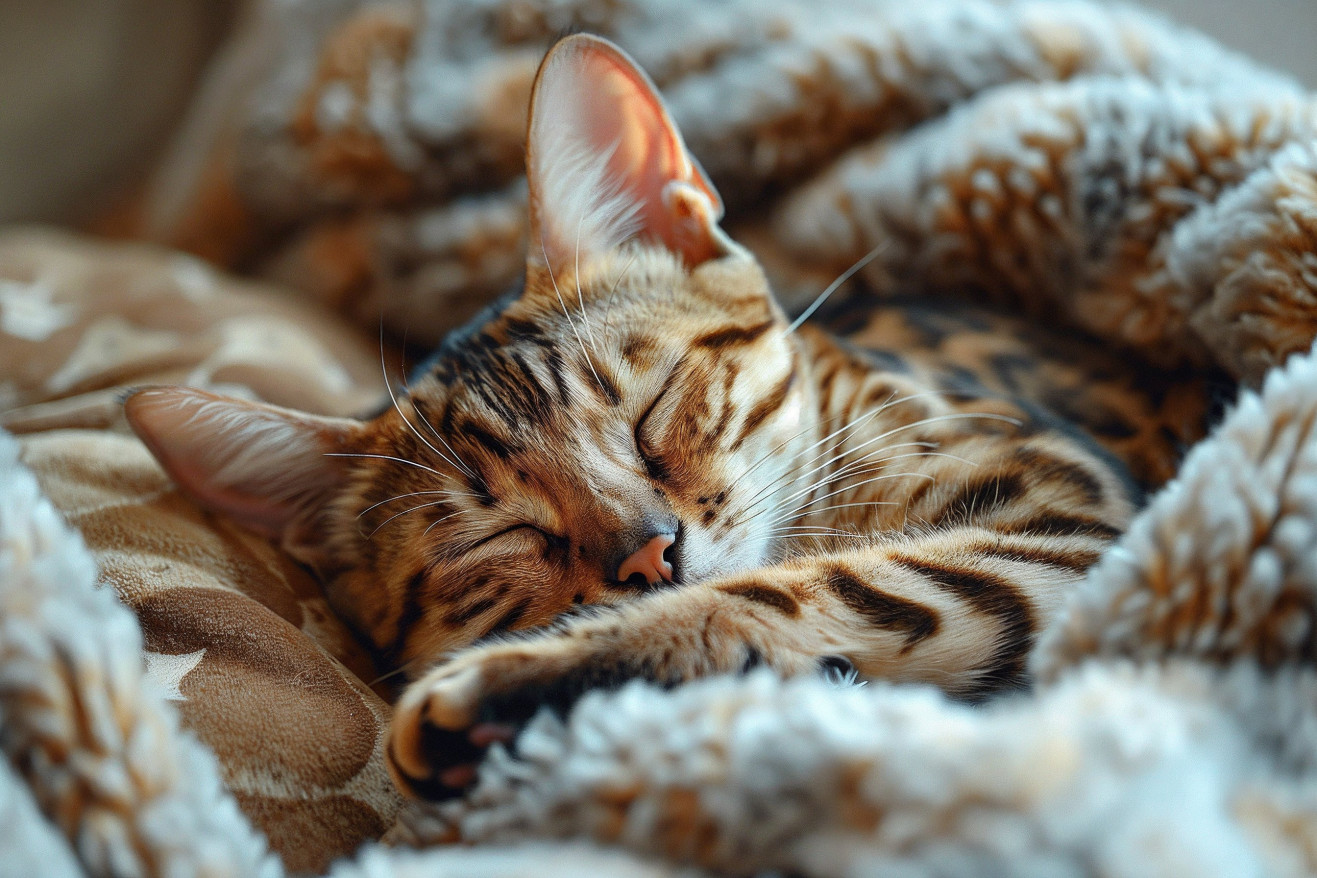Can Cats Get Kennel Cough? Causes, Symptoms, and Treatments
18 April 2024 • Updated 18 April 2024

Cats can get kennel cough, a highly contagious respiratory infection, but the question of whether cats can get kennel cough leads to many other questions about the causes, symptoms, and treatment options for this condition. In cats, kennel cough is caused by viruses or bacteria that lead to inflammation in the upper respiratory tract. Clinical signs of kennel cough in cats include honking coughs, nasal discharge, lethargy, and loss of appetite. Most cases are mild and self-limiting, and cats will recover with rest and supportive care, but antibiotics can help if a bacterial infection is present.
In this article, we'll take a closer look at the latest veterinary studies on kennel cough in cats, including research on the pathogens that cause the condition, the various ways it can be transmitted, and the risk factors that can make cats more likely to contract it. We'll also discuss how to prevent kennel cough in cats, including the use of vaccines, and the most effective ways to treat and care for cats with kennel cough to help them get over it as quickly as possible.
Can cats get kennel cough?
How to Tell If Your Cat Has Kennel Cough
The most common sign of kennel cough in cats is a dry, hacking cough that may be induced by pressing on the cat's trachea. As the Cornell University's Feline Health Center explains, this cough is often described as a cat trying to clear its throat. Other respiratory symptoms include nasal discharge, sneezing, and eye discharge.
In addition to respiratory symptoms, cats with kennel cough may also experience lethargy, fever, loss of appetite, and general malaise. As Wagwalking.com points out, breathing problems or wheezing may also occur in more severe cases, which may indicate pneumonia. If your cat experiences these symptoms, seek veterinary care immediately.
According to the veterinarians at Catster, symptoms usually develop 2-14 days after a cat has been exposed to the bacteria or virus that causes kennel cough. In mild cases, the cough and other respiratory symptoms will go away within 1-2 weeks. However, if symptoms persist, it may be a sign of a more serious issue, so it's important to keep a close eye on your cat's symptoms.
Risk Factors and Transmission: How Do Cats Get Kennel Cough?
Cats with compromised immune systems due to stress, poor ventilation, or smoke exposure are more likely to get kennel cough, per Basepaws. In addition, Great Pet Care explains that kittens and older cats are more likely to experience more severe symptoms because their immune systems are immature or compromised.
The Bordetella bacteria that causes kennel cough is transmitted through direct contact with infected animals or the inhalation of contaminated respiratory droplets, according to TriStar Vet. The bacteria can also live on surfaces for up to 2 weeks, which enables indirect transmission, per the Basepaws article. The risk of exposure and infection is also higher in overcrowded or unsanitary environments, as cats can catch the infection from both other cats and dogs through close contact.
Treatment and Care: How to Help Your Cat Get Over Kennel Cough
In most cases, mild kennel cough in cats will go away on its own within 1-2 weeks with rest and supportive care at home, according to Wagwalking.com. If a bacterial infection is present, antibiotics like doxycycline can be used to treat it, especially in more severe or chronic cases, according to Palmdale Vet. Anti-inflammatory drugs can also be used to help with coughing and respiratory symptoms.
Isolation, hydration, and a clean, low-stress environment are all important parts of recovery, according to CVets.net. In addition, immune-boosting supplements and the use of a humidifier can help with respiratory symptoms, according to the professionals at Cats.com. With the help of a vet and proper care at home, most cats will recover from kennel cough.
How to Avoid Kennel Cough: Vaccines and Other Preventative Measures
A Bordetella vaccine exists for cats and is recommended for those who are at a higher risk of contracting the illness, per Rancho Cucamonga Vet. The vaccine can be given via an intranasal spray or injection and is usually administered once or twice a year.
Other preventative measures, such as good hygiene like cleaning and not allowing cats to come into contact with infected animals, can help reduce the spread of the illness, according to Merck Animal Health USA. In addition, reducing stress, ensuring proper ventilation, and supporting the immune system can also help prevent cats from getting kennel cough, per Basepaws.
For multi-cat households or shelters, it's important to isolate sick cats and make sure that all surfaces are properly cleaned, per Rancho Cucamonga Vet. By taking these steps, cat owners can help ensure that their pets don't come down with kennel cough and the discomfort and potential health issues that come with it.
Conclusion: How to Keep Your Cat Safe From Kennel Cough
As Hill's Pet notes, kennel cough is a highly contagious respiratory infection that can affect both dogs and cats. The infection is caused by a number of different viruses and bacteria, with Bordetella bacteria being the most common cause in cats.
Many of the symptoms of kennel cough in cats are similar to those in dogs and include coughing, difficulty breathing, sneezing, and nasal discharge. In addition, as Catster explains, cats may also experience exercise intolerance, fever, lethargy, and loss of appetite. Although kennel cough is typically self-limiting, cats often require antibiotics and anti-inflammatories to recover from the condition.
Preventing the spread of kennel cough is important since it can be transmitted between dogs and cats and to people. This means that good hygiene, minimizing contact between sick and healthy animals, and vaccination are all important ways to keep cats safe.


